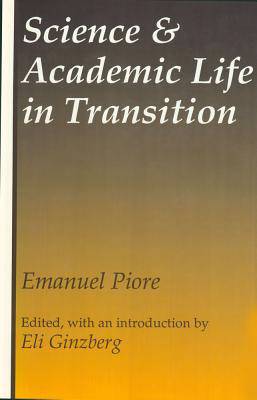
- Retrait gratuit dans votre magasin Club
- 7.000.000 titres dans notre catalogue
- Payer en toute sécurité
- Toujours un magasin près de chez vous
- Retrait gratuit dans votre magasin Club
- 7.000.0000 titres dans notre catalogue
- Payer en toute sécurité
- Toujours un magasin près de chez vous
Description
This is a first-hand account of the changing role of the federal government in science policy from World War II to the present day. During this period, the U.S. government formulated how it would finance university research and stimulate scientists to take leadership roles in many areas. As chief scientist of the Office of Naval Research, Emanuel Piore was at the center of these events. His story tells us much about how the United States was able to catapult into world leadership in science in the postwar period.
In simple, direct prose, Piore describes how the U. S. government encouraged key groups of mostly younger scientists to organize into working groups at Cal Tech, Berkeley, Los Alamos, Chicago, Columbia, Harvard, and MIT during World War II. These groups carried out major projects that both assured the allied victory and set the stage for postwar relations between Washington and the universities. He describes his role of research at IBM as the corporation took the lead in developing the new computer industry. And he has a good deal to say about how the science adviser to the president has fared under presidents from Eisenhower to Bush.
Piore offers trenchant observations about the strengths and weakness of national science policy among the leading countries of Western Europe, Japan, and the Soviet Union. And he tells us how the National Academy of Sciences operates and the problems it encounters. Piore's story has much to tell us about the basis for U.S. leadership in science, as well as policy decisions that may weaken our scientific base. It will be of interest to all those interested in the interaction of science and society.
Spécifications
Parties prenantes
- Auteur(s) :
- Editeur:
Contenu
- Nombre de pages :
- 103
- Langue:
- Anglais
Caractéristiques
- EAN:
- 9780887383373
- Date de parution :
- 30-01-90
- Format:
- Livre relié
- Format numérique:
- Genaaid
- Dimensions :
- 152 mm x 229 mm
- Poids :
- 340 g







